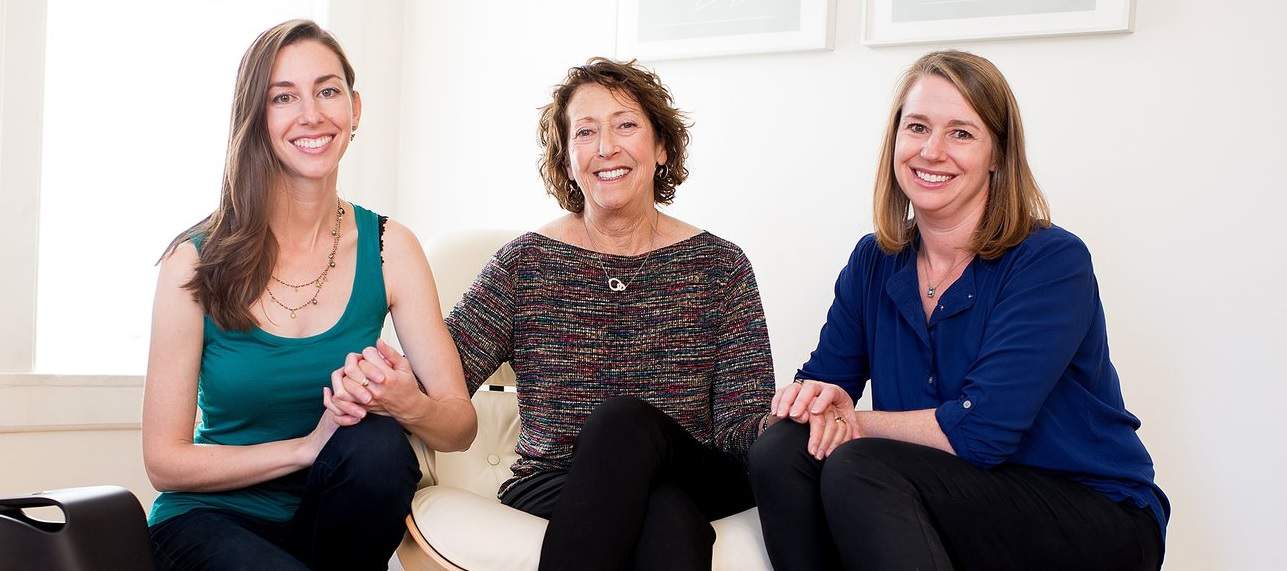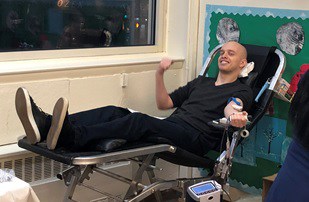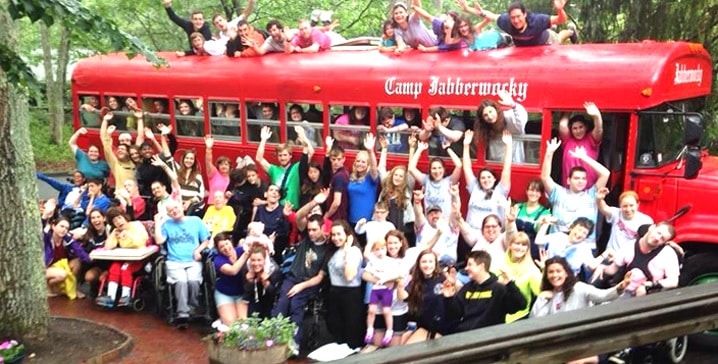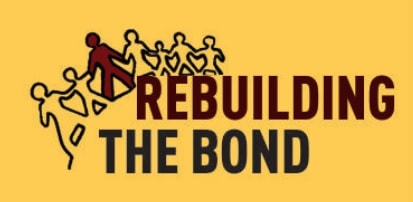Marlow Hoffman has two huge goals for the project she has created: find her mother Barbara a living kidney donor, and raise $3 million for the Bionic Kidney Campaign to save millions like her tomorrow.
Marlow’s quest to find her mom a kidney donor started in June, 2016. She planned on making that the focus of her community project when she began Landmark’s Self-Expression and Leadership Program in October 2017. One month into the program, she found out about a team of researchers at the University of California/San Francisco (UCSF) creating a bio-artificial kidney as a permanent solution to End Stage Kidney Disease. The team is led by Dr. Shuvo Roy and known as The Kidney Project.
“The device they’re creating could end the need for donor organs and dialysis in as little as two years. Reading about their game-changing research set off a spark in me, so I expanded the goals of my project and launched the Bionic Kidney Campaign in December of last year,” said Marlow.
Her mom—a fiercely loving wife, mother, and grandmother—inspired her to start this project. Until her health was compromised, she was an amazing music teacher, a talented jeweler, and she took care of the nephews every day after school. She has been on the national transplant list for five years and on dialysis for three.
But Barbara isn’t the only one suffering. Kidney disease impacts millions of people in the country. While many of them are on dialysis, they’re exhausted and, ultimately, dying. There are 117,000 people in the U.S. who need a kidney right now, yet only 20,000 donors are available each year. Dialysis is a short-term solution that is very hard on the body. It keeps patients hooked up to a machine for much of their lives and costs the federal government $40 billion a year.
“I am committed to finding my mom a kidney to save her life,” said Marlow. She is my everything. But here’s the thing: there are millions like her suffering from kidney disease, and each of those people is someone’s everything. That’s why supporting a better solution for the future is so important.”
Seemingly everyone in Marlow’s life has gotten involved. Her close friend, Jocelyn Hittle, created a fundraiser for Barbara & the Bionic Kidney Campaign in January 2018. She enrolled a friend to donate his event space at Bellwether (a coffee shop, cocktail stop, barbershop, and events space all wrapped into one). They went with dark humor and had the bartenders create a signature drink called “The Kidney Punch.” On the back wall, they featured a loop projection of the opening for the 1970s show, The Bionic Woman. They also provided food, had a raffle with silly prizes, told everyone why this project and their help is so important, and showed everyone a good time. The event inspired two people to get tested for Barbara, and it raised $2,260 for the Bionic Kidney Campaign.
Meanwhile, a resident in Marlow’s apartment building who she met a few weeks ago, Sandy Wilcox, is organizing a fundraising event for the Bionic Kidney Campaign with the goal of bringing together local chefs to create kidney-healthy entrees or small bites. The goal of the event is to raise awareness about the Bionic Kidney Campaign, register people to donate money, and inspire people to get tested to see if they could be a kidney match for Barbara.
A woman named Deb Girard, also from her apartment community, is organizing all the contacts they’ve reached out to, efforts that they’ve made, and work that they’ve done, into an easy-to-use/ easy-to-manage list and guide. She’s essentially creating a template for the project so that Marlow can share it with others across the nation, giving them the tools to replicate and expand upon the work.
Her boyfriend, John Bollich, is a project participant in a wide variety of ways: He helped Marlow come up with the project title and has brainstormed and implemented ideas to raise awareness for both aspects of the project. He has magnets on his car about Marlow’s mother, and he walked up and down the 16th Street Mall with Marlow holding up signs. He also created a virtual Facebook event to increase campaign donations. John has been everything from her copy editor to her confidant.
Marlow’s mom, dad Gary, and Sister Nicole are all involved in the process of finding mom a kidney. Marlow and her sister are not a match for mom, so they’re both on the paired kidney donation list (essentially a kidney swap). If they find a kidney for Barbara through that process, her sister will likely be the one to donate. With blood type O, she is a universal donor, and more likely to match someone else in need of a transplant.
In recent months, Amy Waterman, a Landmark graduate and one of the leading experts in transplant education, has guided and connected Marlow with others so that they can find a kidney for her mother as quickly as possible.
Even with all this support, it hasn’t always been easy.
“It took longer than anticipated to launch this campaign,” noted Marlow. “It also took a fair amount of coordination, but it was definitely worth the time and effort. For starters, it gave me an opportunity to get to know the project manager for The Kidney Project, as well as the director of development and the director of alumni annual giving for UCSF.”
In addition, they believe it’s beneficial to have the campaign on the University’s site for a number of reasons:
1) People don’t have to spend as much time vetting the website or the cause.
2) All donations go directly to The Kidney Project’s research at UCSF; that’s not the case when using platforms such as GoFundMe, which take a significant percentage of each donation.
3) When someone donates, that person immediately receives a thank you email from the University instead of from an unrelated fundraising platform.
4) Having the Bionic Kidney Campaign on UCSF’s site creates a stronger link between her efforts and those of the researchers.
They wanted to set a $3 million fundraising goal–The Kidney Project is gearing up to start in-human testing, and that would cover one year of their research. But when the time came to tell UCSF the goal, Marlow was terrified to commit to something she didn’t know how to achieve.
“I told my coach it felt like I was standing at the edge of a cliff, and the person next to me said, Jump, you’ll find a way to make a parachute on the way down.”
Here are just a few of the things accomplished in this project so far:
– Together, they have raised more than $30,000 for the Bionic Kidney Campaign.
– 240+ people have donated money to the campaign.
– A Denver native is prepared to donate $75,000 to this effort through his company (if UCSF is able to accept the funds).
– More than 16 people have been tested to see if they’re a kidney match for Marlow‘s mom, and many, others called to get tested and were ruled out as potential candidates over the phone.
– I’ve connected with an expert in her field, who is helping me navigate the options to find my mom a kidney. As a result, in addition to being listed in Colorado, her mom is now enrolling into UCLA’s Kidney Transplant Program, which will increase her chances of finding a match.
– They’ve received media coverage from The Denver Post, 303 Magazine, and Denver 7 News. In recent weeks, a videographer for The Denver Post has also come out to cover the project four times for a piece that will go live in early April.
– They created a website for the project (www.kidneyforbarbara.com) that tells Barbara’s story, answers commonly-asked questions about being a living donor, guides you on how to find out if you could be a potential kidney match for Barbara, and provides an opportunity to donate money to the Bionic Kidney Campaign.
– They also increased the number of people who like and follow the Facebook page, Help Barbara Hoffman Find a Living Kidney Donor, to nearly 250.
– They have also generated a huge wave of awareness about living kidney donation and UCSF’s ground-breaking research through social media. Countless people have shared the website, social media posts, local news stories, and campaign link with a plea asking their friends to help.
Marlow intends to be a champion for her mom and those like her long after they find her a kidney. Both she and the participants in the project are committed to expanding awareness about the importance of living donation today, while continuing to help The Kidney Project make their life-saving device a reality for patients tomorrow. Perhaps Marlow will create a non-profit, or she may start a dialogue with UCSF to see what the possibilities are for working with them more closely than she already is.
“My Self-Expression and Leadership Program community’s love and support was palpable, and our leader was a constant source of inspiration,” said Marlow in summary. “The weekly calls with my coach were also essential: They led to revelatory breakthroughs—and those breakthroughs drastically altered how I’m approaching this project and navigating my world. Now, if I’m out of action because I’m overcome with emotion and making myself or others wrong, I remind myself of what I’m committed to and ask myself this question: Is my nonsense more important than saving people’s lives? It’s an easy question to answer, and new possibilities always follow. Lastly, the program allowed me to chip away at the things preventing me from living a powerful life. I’m forever grateful for that. I now experience myself as a champion for others, and I see a whole world of possibilities ahead.”



